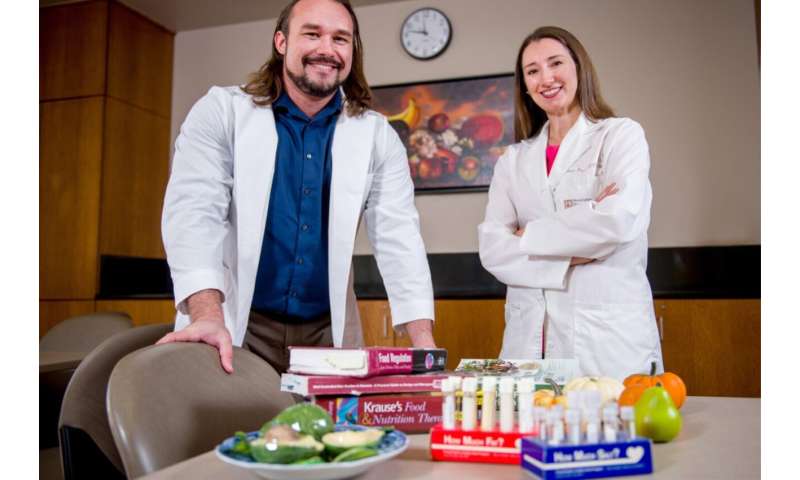Pennington Biomedical: Practice Small Shifts for Nutritional Health

Once a person decides it's time to lose some weight, it may be difficult to determine what's the best option for them. With all the diet noise out there, what's the best way to take off those unwanted pounds—and keep them off?
The answer lies not in radical changes, say experts at the Pennington Biomedical Research Center, but in small increments. Easy and attainable adjustments, like staying hydrated, opting for more fruits and vegetables and eating mindfully, have a way of snowballing into long-term lifestyle changes that can help shed pounds and boost energy.
"A common misconception is that good nutrition is all or nothing," says Pennington Biomedical Registered Dietitian Renee Stelzer, Director of the research center's Metabolic Kitchen. "There's an old saying, 'Don't let perfect get in the way of good,' and it really applies here."
As a world-renowned nutrition research center, Pennington Biomedical has been on the forefront of how diet impacts health for decades. With hundreds of studies demonstrating the value of sound nutrition, the research center rolled out its Small Shifts campaign this year to showcase the cumulative value of daily common-sense changes.
"A great place to start is by just making sure you're eating a variety of fruits and vegetables every day, as well as lean, quality sources of protein," says Pennington Biomedical Assistant Professor Dr. Jacob Mey, who studies the impact of nutrition on conditions like asthma.
Substituting fruits and veggies for less healthy foods is easy to do both at home and while dining out. Even if finding fresh produce is difficult, frozen fruits and vegetables offer high nutrition value, as do low-sodium, low-sugar canned options, Stelzer says.
Drinking plenty of water is another easy modification, and one that reaps double rewards. It keeps you hydrated, a must for the body's many functions. And when you substitute water for sugary drinks, it saves you lots of empty calories.
Dr. Mey and Stelzer say integrating mindfulness is also key. Begin to think about what you're eating and how it makes you feel. Chew slowly. Observe when you start to feel satisfied rather than continuing to eat thoughtlessly.
"Everything in moderation," Stelzer says. "If you're mindful at mealtime, the calories will work themselves out."
Most of all, don't let "imperfect" behavior derail your overall commitment to living well.
"Even if you make what you consider to be an unhealthy choice, the whole day isn't ruined," Dr. Mey says.
To take part in Pennington Biomedical's "Small Shifts" campaign, people are encouraged to sign up online at pbrc.edu/smallshifts. Upon signing up, participants will receive a free health journal with helpful health resources, a habit tracker, a meal planner and recipes from Pennington Biomedical's Metabolic Research Kitchen.
Additionally, participants will receive monthly "Small Shifts" messages in which researchers will provide guidance through new small shifts. Participants' names will also be entered into monthly drawings for giveaways, including water bottles, t-shirts, Bluetooth earphones and other prizes.
If you are participating in the "Small Shifts" campaign, use the hashtag #smallshifts to share your journey.
About the Pennington Biomedical Research Center
The Pennington Biomedical Research Center is at the forefront of medical discovery as it relates to understanding the triggers of obesity, diabetes, cardiovascular disease, cancer and dementia. Pennington Biomedical has the vision to lead the world in promoting metabolic health and eliminating metabolic disease through scientific discoveries that create solutions from cells to society. The center conducts basic, clinical, and population research, and is a campus of the LSU System.
The research enterprise at Pennington Biomedical includes over 530 employees within a network of 44 clinics and research laboratories, and 13 highly specialized core service facilities. Its scientists and physician/scientists are supported by research trainees, lab technicians, nurses, dietitians, and other support personnel. Pennington Biomedical is a state-of-the-art research facility on a 222-acre campus in Baton Rouge.
For more information, see www.pbrc.edu.
Provided by Louisiana State University